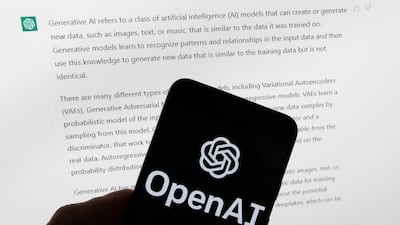A growing number of business leaders globally are considering relying on artificial intelligence to make organisational decisions for them to relieve them of the challenge of handling massive amounts of data, a new study from Oracle has found.
About 70 per cent of leaders — and 64 per cent of all those surveyed — would prefer to have a robot make the decisions for them as the “situation is so challenging”, the Decision Dilemma report showed.
Enterprises that use technology to make data-driven decisions are likely to have a better reputation, with 79 per cent saying that it made them more trustworthy and potentially more successful, it said.
Respondents believe that they are likely to invest in (76 per cent), partner with (77 per cent) or work for (78 per cent) these companies, the report showed.
“The message is overwhelmingly clear — our current approach to managing and analysing data must change, especially in the business world,” the report said.
“The benefits of getting it right span from attracting talent in a difficult job market, to gaining new investors in a tough economic climate.”
Businesses and workers are handling more data than ever before in an era of digital transformation, in which technology touches practically every part of life.
This has prompted users to seek innovative ways to deal with data and eventual decision making, particularly gravitating towards AI and machine learning.
While these technologies are not new in business, they have significantly gained momentum with the advent of generative AI, made popular by OpenAI's ChatGPT, which can produce various kinds of data, including audio, code, images, text, simulations, 3D objects and videos.
“In theory, the data should help, but in reality, it's having the opposite effect,” the study said.
About 97 per cent of people want help from data, but 86 per cent say the volume of data is making decisions in their personal and professional lives much more complicated, it said.
The influx of data is also hurting business performance, with 91 per cent of leaders claiming that the growing number of data sources has limited the success of their organisations, the study said.
A further 73 per cent admit their lack of trust in data has stopped them from making any decisions at all.
“Having the right type of decision intelligence can make or break the success of an organisation,” the study said.
In the Arab world's two largest economies, the numbers are higher for business leaders who prefer robots to make decisions, at 78 per cent in Saudi Arabia and 73 per cent in the UAE.
“Business leaders know the right data and insights can be a game changer … when they have the right data and insights, they can make better decisions for human resources, finance, supply chain and customer experience,” the study said.
“Clearly, something’s got to give, and that something is how most organisations currently approach managing and analysing data,” it said.
“What business leaders really need is decision intelligence, connecting data to insight, to decision, to action.”


